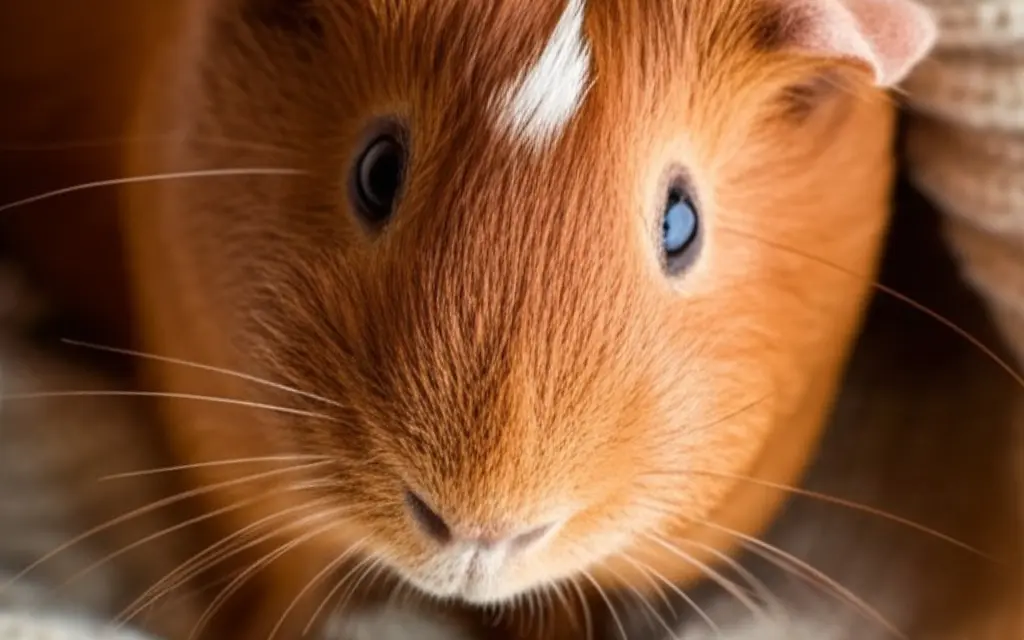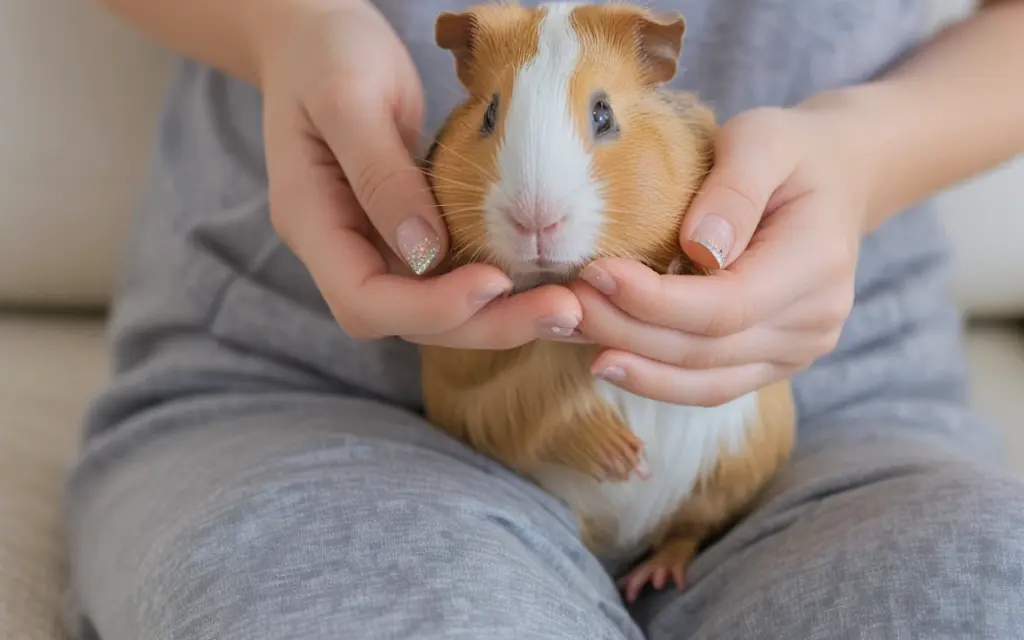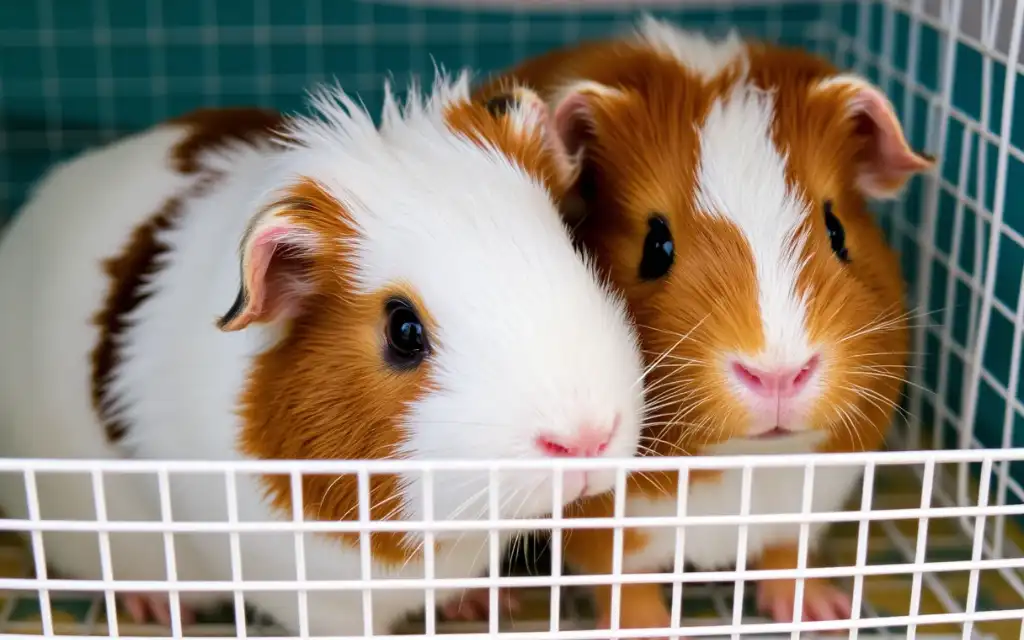Setting up the cage before welcoming a guinea pig into your home is necessary. These little furballs are full of personality and sociability. So, they deserve a comfortable place where they can relax as well as have fun. It’s just like building a mini studio apartment for your furry companion.
Here, I will guide you to setup a guinea pig cage that seems like paradise for your piggie.
Why does building a guinea pig home matter?

A healthy guinea pig is always active and joyful. They come up with different stunts like sprinting and mid-air twists, mostly when they are healthy and happy. So setting up a well-designed, spacious cage is important for these tiny athletes.
Your beloved pet may have behavioral issues, stress, and obesity if they are kept in a small, boring cage. Furthermore, as a pet parent, you will never want a grumpy guinea pig.
How to set up a cage for your guinea pig?
Here’s a step-by-step guide to setting up a proper and beautiful cage for your happy piggie.
Step 1: Select the right cage size
As your guinea pig needs enough space to roam, the cage size should always be a minimum of 7.5 square feet for 1 pig and 10.5 square feet for 2 pigs. A cage of 10 to 12 square feet is ideal.
Bigger is Better
- Keeping your piggie in a too-small cage is just like living in a bathroom the whole day.
- There must be a separate bathroom corner, a zoomies zone, and a food area inside the cage.
- Try using coroplast and cube cages as they are large in size, customizable, and affordable.
Step 2: Choose the right cage type
All the cages are not the same. Here are some of them in detail.
C and c ( cube and coroplast ) cages
They are huge, modular, and you can add loft levels for extra cozyness and fun. However, it requires light assembly.
Plastic habitats
These cages include tunnels and have a sleek appearance. However, they are harder to clean and allow limited airflow.
Wire cages with plastic base
It provides good ventilation and is easy to clean. However, wire floors can hurt the tiny feet of your piggie. These cages are often too small.
Step 3: Ideal location to place the cage

Placing the cage in a perfect location is important as it impacts the overall health and well-being of your guinea pig. Here’s where to place the cage.
Floor or stand
Placing the cage on a stand instead of placing it directly on the floor is better. Elevating the cage on a stand can protect the tiny rodents from cold floors and other curious pets.
Avoid drafts and direct sun rays
Extreme weather conditions should be avoided. As drafts can cause respiratory issues, and placing the cage under direct sunlight can cause overheating.
Provide social spaces
As guinea pigs are social animals, so they love to be around their favorite humans. Place their cage in your living room or any other busy part of the house where they can see you and interact with you easily.
Step 4: a comfortable bedding
A cozy bed can be the favorite place for your little piggie. They can use it as a nap zone, snack catcher, or carpet.
Layer the bedding 1 to 2 inches thick for that ultimate comfort. You need to spot clean daily and completely change the bedding weekly. Here are some of the best bedding.
| Aspen shavings | Go for Aspen, as it is budget-friendly and safe. The fumes of pine and cedar are toxic. So, avoid them. |
| Fleece liners | You can pair the liners with puppy pads or towels underneath. The fleece liners are cost-effective, reusable, soft, and long-term. |
| Paper-based bedding | These bedding are absorbent and dust-free. Go for a reputed brand like Carefresh. |
Step 5: Most needed accessories
Here are some must-have accessories that your guinea pig will need to stay happy and active.
toys and enrichments
Provide chew toys, hay racks, and tunnels inside the cage to beat boredom. Chew toys like cardboard castles and applewood sticks can keep them busy grinding throughout the day.
Clean food stations
To keep the cage fresh and clean, use ceramic bowls as they are heavy and avoid tipping. Your piggie can easily flip a plastic bowl. Using water bottles that do not drip can also be a good option.
Hideouts
As your little piggie needs privacy, so provide cozy fleece tents, wooden huts, or PVC pipes inside the cage.
Step 6: Setting up a strict diet plan

Preparing a proper diet plan like a pro can help the tiny rodent stay healthy and charming.
Fresh veggies
Feed veggies like cilantro, kale, and bell pepper to your furry friend daily so that they get the required vitamin C.
Pellets and hay
Pellets contain vitamin C that is beneficial for your pig as it cannot produce vitamin C of its own. 1/8 cup of pellets should be fed per pig. On the other hand, 80% of their diet is hay. Your beloved pet will love to munch on Timothy orchard grass.
Water
Clean the water bottles and bowls daily to prevent bacteria build-up.
Step 7: Clean the cage
Your piggie will only be happy and disease-free if the cage is clean. Here is the cleaning poutine.
Deep cleaning weekly
The cage should be cleaned with a vinegar and water solution every week. Empty the cage before cleaning thoroughly. Also, change all the bedding.
Daily cleaning
Wipe up spills, remove soiled bedding, and refresh food/water on a daily basis.
Check for any health issues while cleaning
While cleaning, when you empty the cage and take your furry friend out, utilize this time to check your piggies’ teeth, fur, and weight. Your piggie may have been smelling ammonia build-up from urine. So, clean them immediately to prevent respiratory issues.
DO YOU KNOW?
Guinea pigs poops up to 100 times a day that will make you a pro at scooping.
What are some common mistakes and their solutions?
| 🐷 Mistake | 🐷 Solution |
|---|---|
| Very small cage | Use cages of a minimum of 7.5 square feet. Using more than 10.5 square feet can be better. |
| Using pine/cedar bedding | Go for fleece liners, aspen, or paper-based bedding. |
| not cleaning frequently | Spot-clean regularly and replace bedding weekly. |
| Using wire flooring | Use solid flooring with soft bedding. |
| Providing no hideouts | Add several hideouts, such as commercial huts and cardboard boxes. |
| Providing water bowls | To avoid contamination or tipping, use drip-free bottles. Check out for any clogs regularly. |
| giving poor diet | Give daily veggies like bell peppers, limited pellets, and unlimited hay that contains a large amount of vitamin C. |
| solitary housing | Create houses in groups or pairs to avoid loneliness and ensure proper bonding. |
| placed in noisy location | Place the cage away from vents in a climate-controlled, quiet area to prevent stress from loud sounds and changes in temperature. |
| placed in noisy location | Schedule annual vet checkups or whenever your pet is sick. Trim nails monthly and check for any dental issues. |
Final touch up
Thoughtfulness and your expertise can help you easily set up a guinea pig cage. Factors that need to be considered when building a cage are safety, stimulation, and space.
A comfy and safe cage with must-have accessories will make your guinea pig’s dream home more attractive and the best place to thrive.

Great guide on creating the perfect guinea pig habitat! 🌟 I especially appreciate the advice on hiding spots—those little guys love to feel cozy and safe. Can’t wait to see how my piggies enjoy their upgraded space!